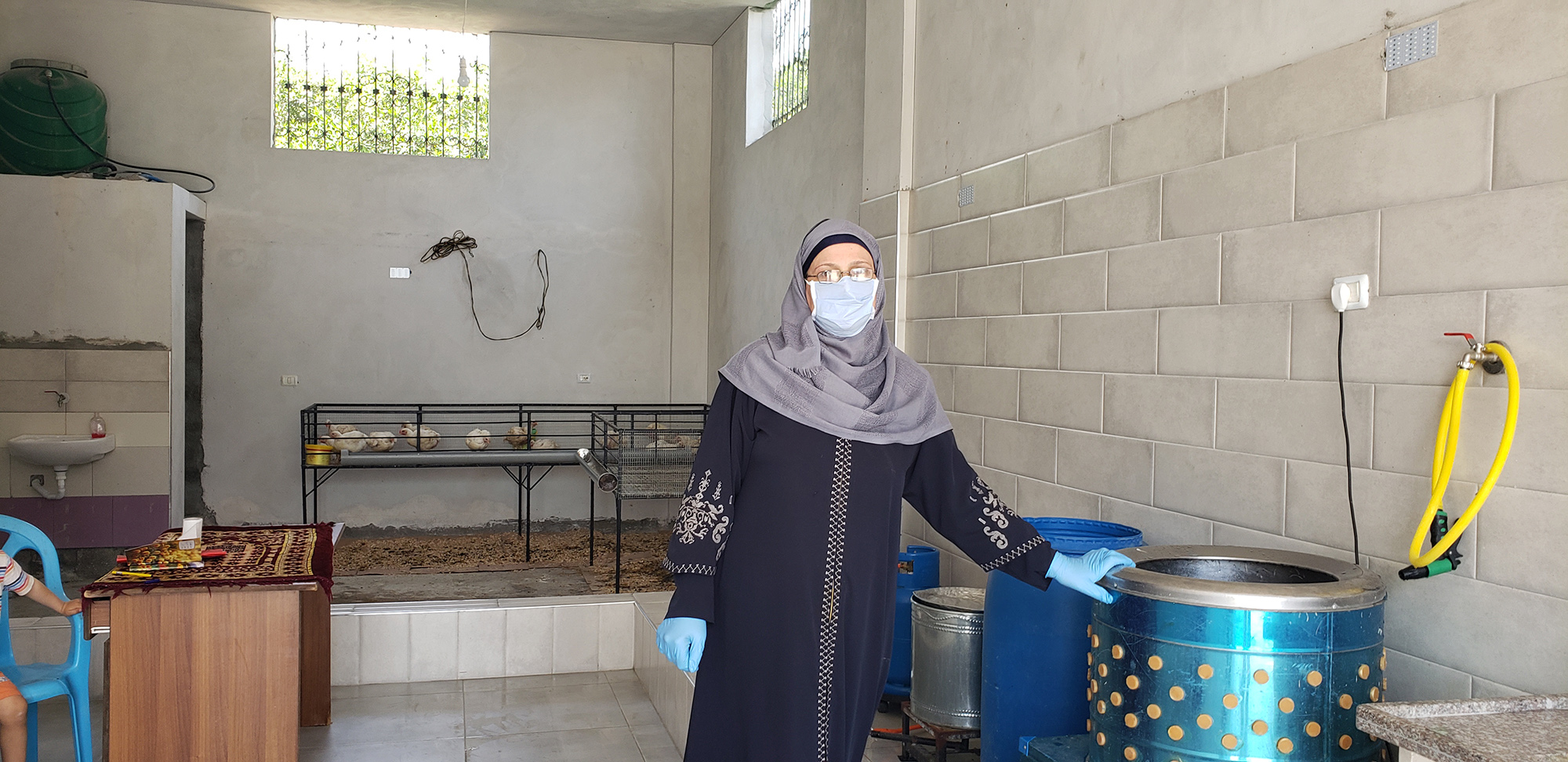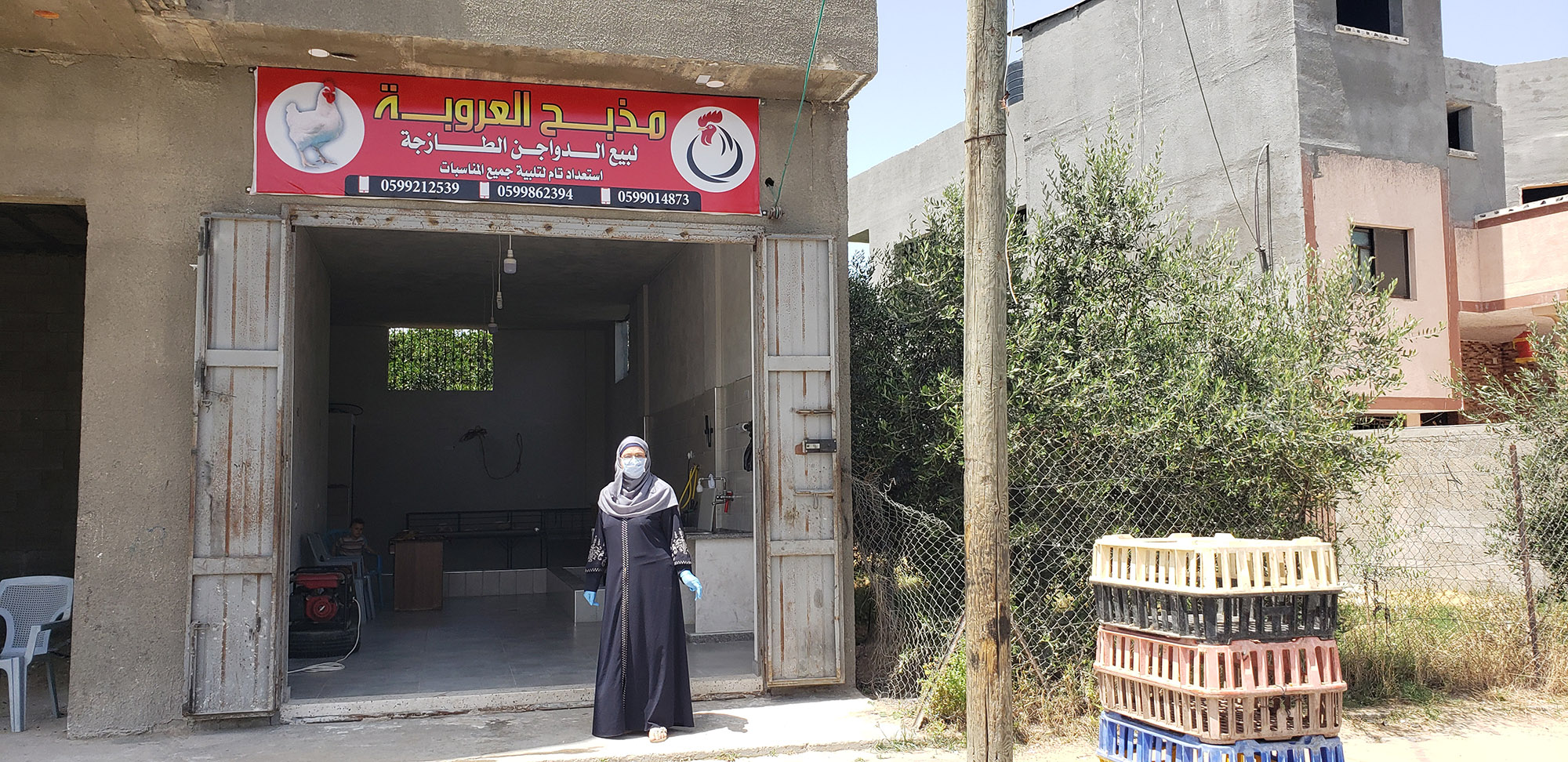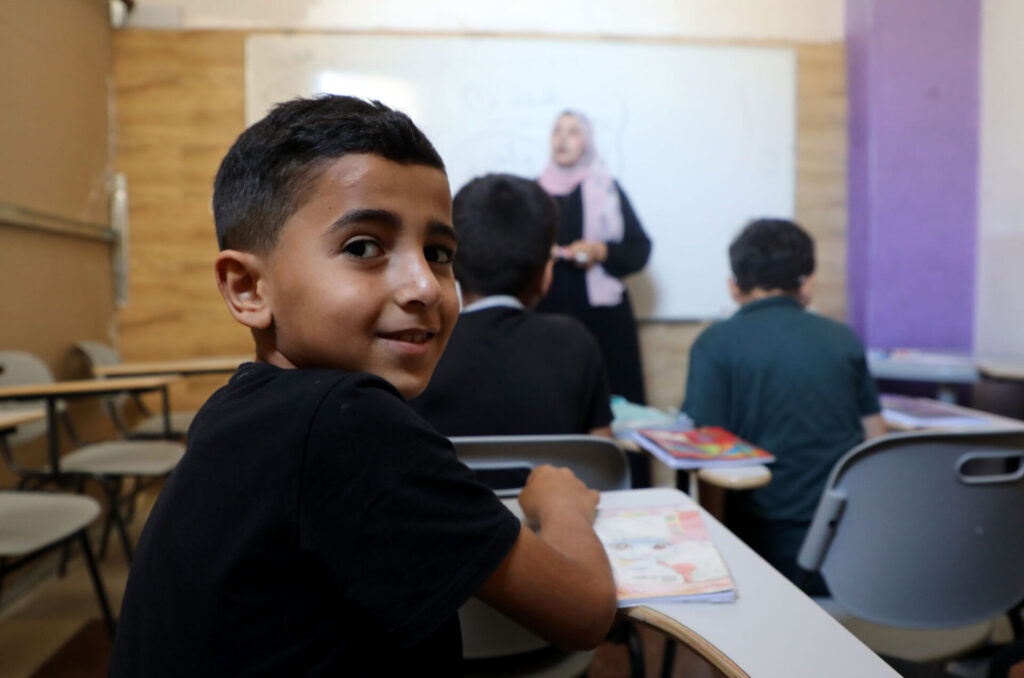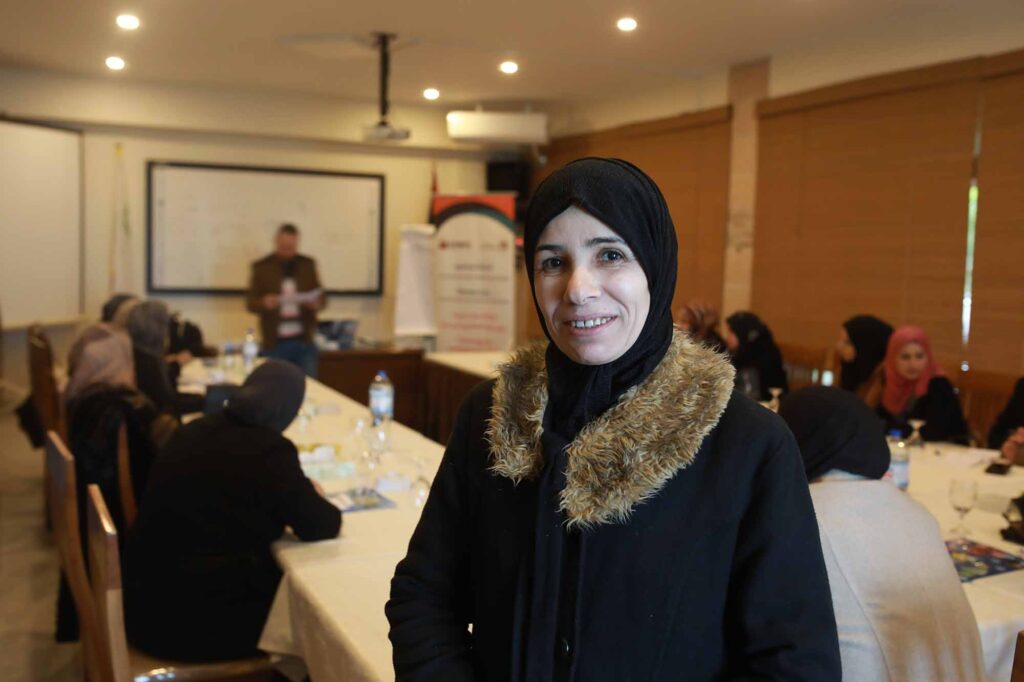COMMUNITY
Two Palestinian women launch complementary businesses in Beit Hanoun, Gaza
Jul, 2020
Both women see opportunity in raising and selling chickens.
Tijan’s Chicken Farm
Tijan has worked inside chicken farms for some two decades. Early on, next to her house in Beit Hanoun, she built a farm to raise 500 chicks. Ever since, the farm felt like part of her family, she says with a chuckle.
Unfortunately, her farm was destroyed during one of the recurrent assaults on Gaza. She never received compensation for her lost property. After that, she had to rent farm facilities.
Recently, Anera gave Tijan a grant to buy chicks, along with feed, gas for the heaters, sawdust, and medicines.
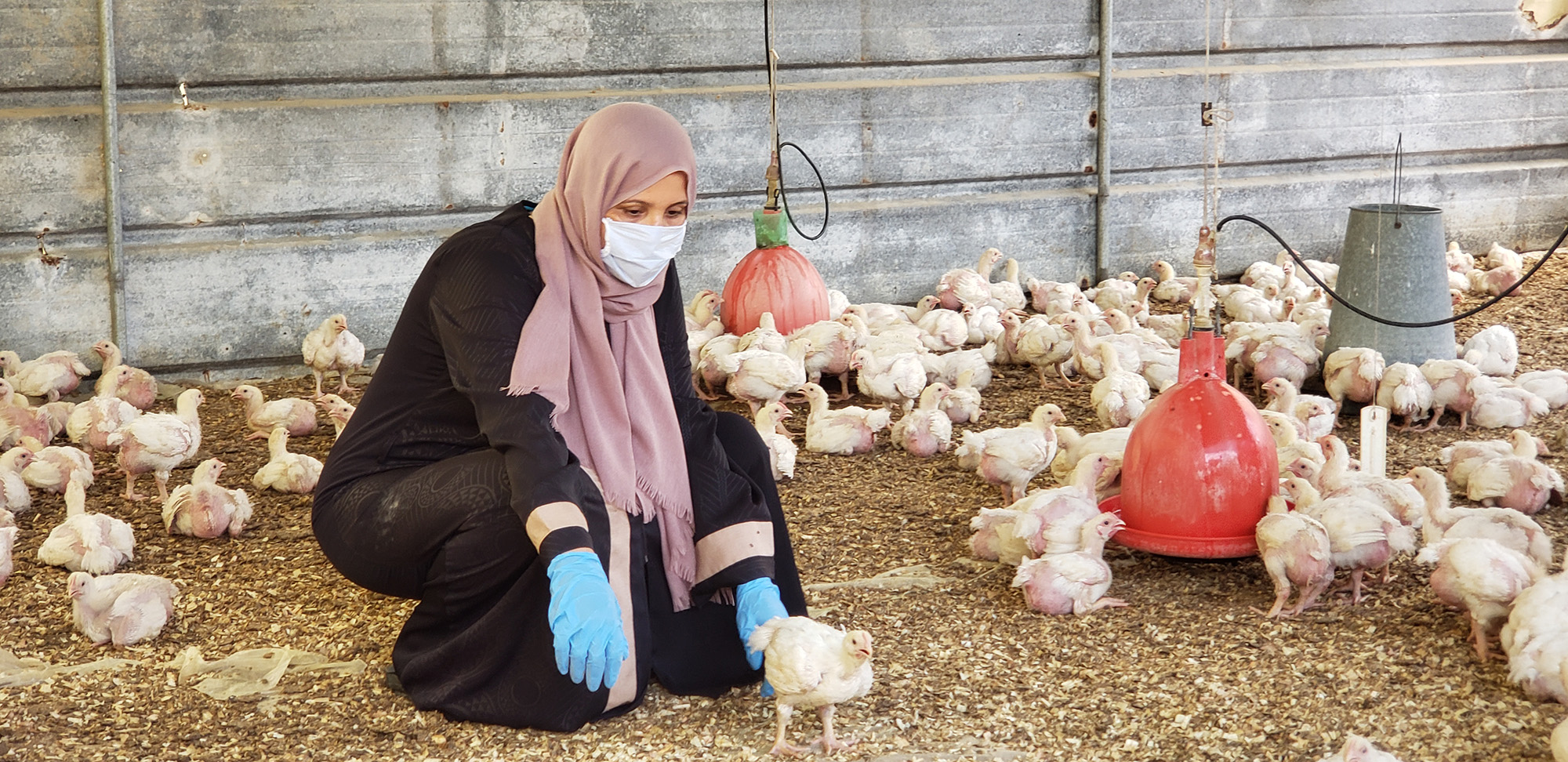

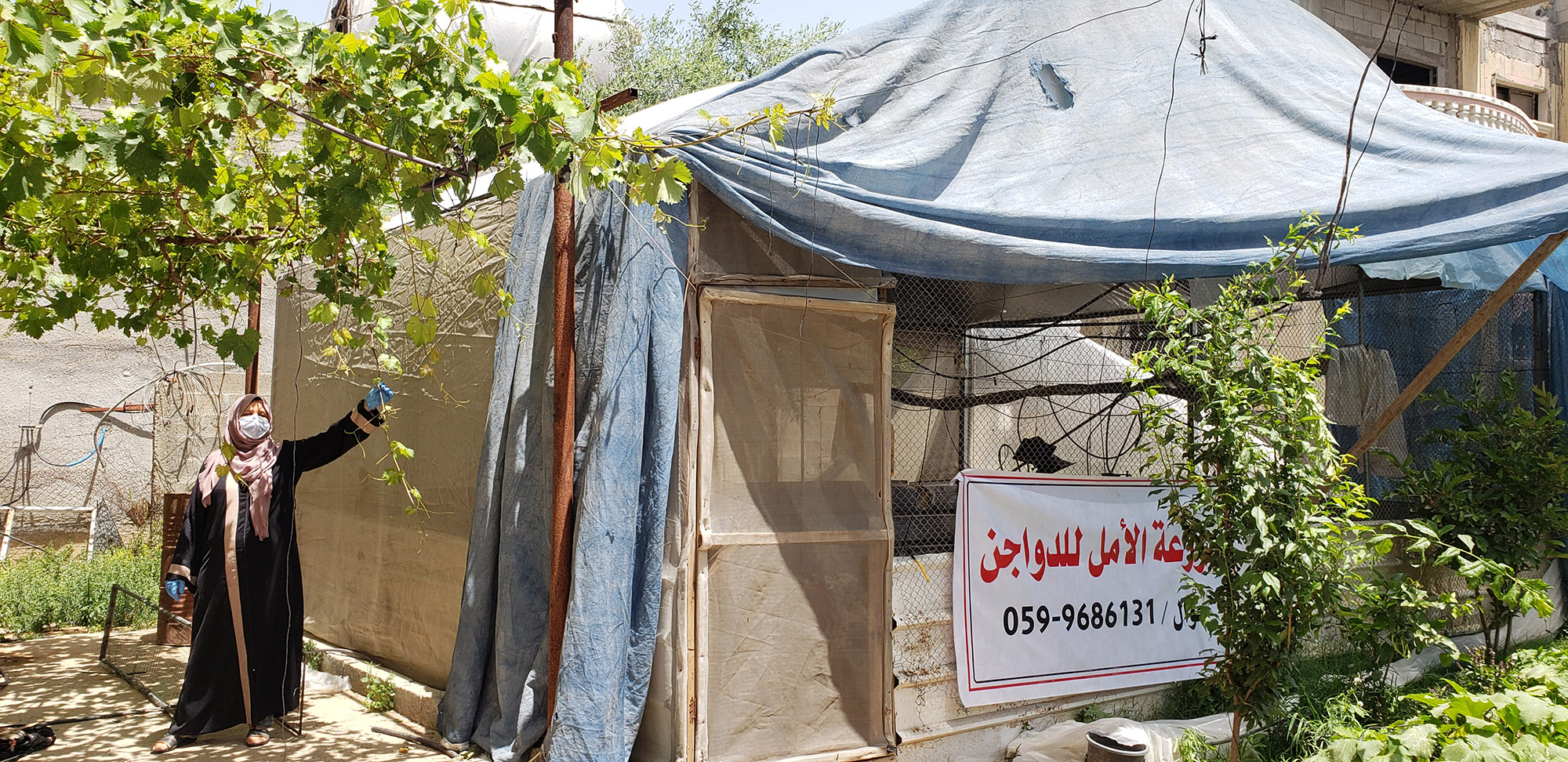

It’s hard work but the new farm is already giving her hope for a better future. Raising the chicks takes a lot of time. And they have different needs depending on their age. She needs to keep a close eye on a number of factors to ensure they thrive, such as monitoring the temperature inside the barn. “It’s 33 C right now,” she says when we visit, “which is perfect.”
Along with the grant, Anera provided technical training to deepen her knowledge. Fortunately, she found it “fun and productive.”
Tijan feels deeply tied to the tradition of working the land. She says,
“We’re connected to the land here. If we don’t raise chicks or grow plants, then we simply don’t belong here. This is what we grow up doing and watching and that’s what our parents and grandparents did.”
Laila’s Chicken Meat Shop
Laila, 45, has always wanted to own a small enterprise. But she didn’t know where to begin. Poverty was the most serious obstacle to her ambition.
However, she saw a niche that she could fill. For many years, her neighborhood in Beith Hanoun didn’t have a local slaughterhouse for chickens.
Laila’s husband is in poor health so she knew it was up to her to improve her family’s circumstances. The mother of four decided to take a chance and applied for one of Anera’s grants to women-headed households.
“A lack of resources was always my stumbling block toward success. When I heard about the project, I applied immediately — and I got it,” she says.
Laila outfitted her small store with a storage space to be a chicken slaughterhouse. With support from Anera staff, she installed a water network and an electrical network, and added wall tiling and a washbasin. She also had to buy equipment, like an electric chicken plucker, knives, gas stove, and other accessories.
A kilo (2.2 lbs) of chicken currently sells for about $3 (11 NIS). She sometimes sells 20 chickens a day, especially on Thursdays and Fridays, when sales are highest.
When Tijan’s chickens grow to maturity, Laila will buy them from her at a good price so she can sell them for meat in her store. It is a win-win business relationship for both of the Beit Hanoun women.
Laila oversees the accounting and bookkeeping while her sons take care of the physical labor. She keeps careful financial records, registering each payment for a sale to track her income.
“I haven’t paid any attention to those depressing voices that say you won’t be able to launch such a project. I only heard the voice inside me that I need to do something to improve our financial situation. Thank God! And my husband backed me up.”
When COVID-19 restrictions loosen and business improves, she would like to buy fridges to store meat. She’d like to start offering seasoned and marinated chicken meat to her customers as well.
“The sky's the limit. Step by step I can reach the top,” she says.
The grants that Anera provided to Tijan and Laila are part of our Gaza Women Economic and Social Empowerment project in northern Gaza. We selected 15 vulnerable women according to the project selection criteria to receive grants ranging in value from $2,000 to $3,000. The women also took part in a management training, offered in cooperation with Anera’s local partner, the Cooperative Society for Saving and Lending (CSSL).

